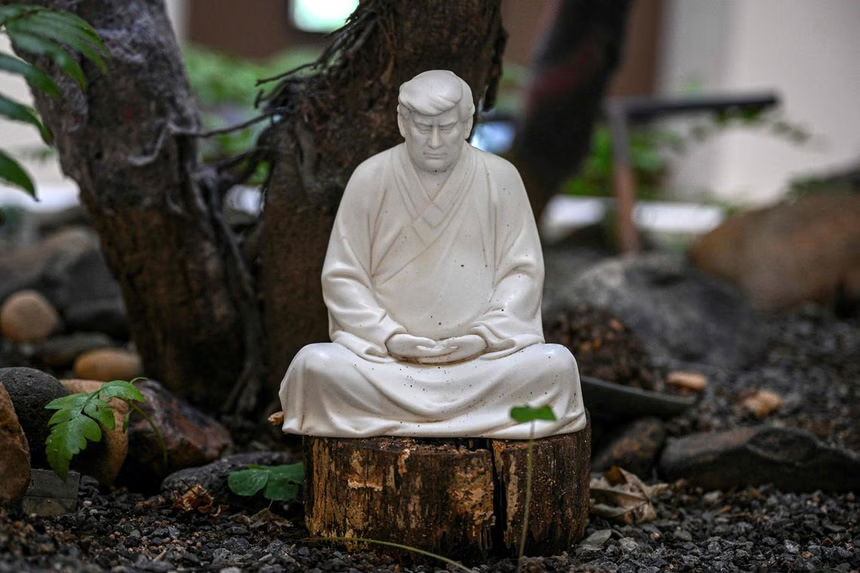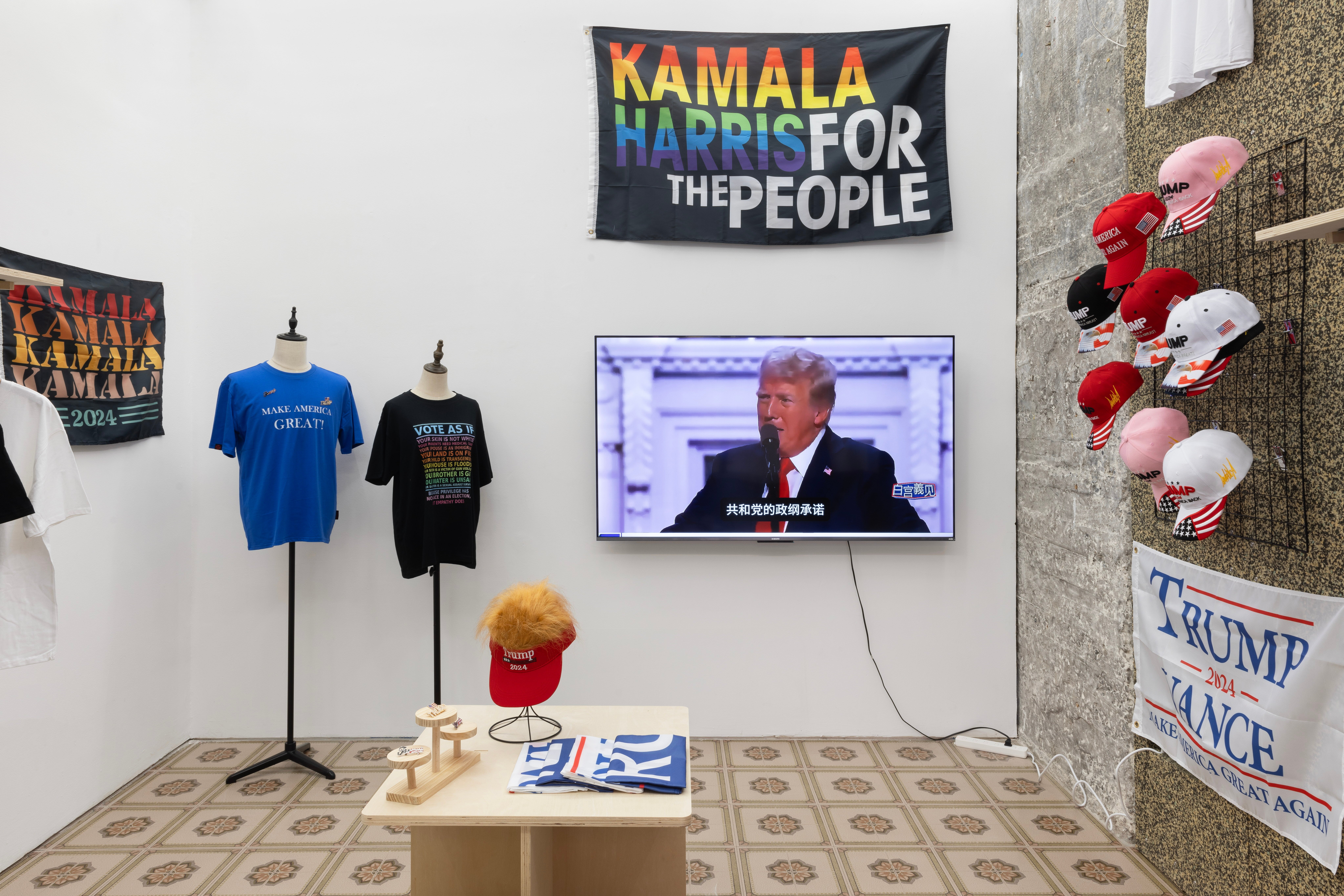Earlier this month, US Vice President Mike Pence gave the first significant policy speech on US-China relations since Donald Trump took office in 2017. Let’s start off by acknowledging that it’s good to know the Trump administration has a China policy other than whether or not Donald Trump thinks Xi Jinping really, really likes him.
Here’s an excerpt from Pence’s speech:
“But I come before you today because the American people deserve to know that, as we speak, Beijing is employing a whole-of-government approach, using political, economic, and military tools, as well as propaganda, to advance its influence and benefit its interests in the United States.
“China is also applying this power in more proactive ways than ever before, to exert influence and interfere in the domestic policy and politics of this country.
“Under President Trump’s leadership, the United States has taken decisive action to respond to China with American action, applying the principles and the policies long advocated in these halls.”
Pence’s words reflected a harder line toward China in the wake of a growing trade dispute and apparent evidence that China is systematically working to influence public opinion – and even elections – within the United States.
There’s also a 100% chance that the Trump administration feels that if they say the word “China” enough times, the American people will forget about Russia.
Russian meddling in US relations? China! Hookers peed on Trump in a Moscow hotel room? China! Vladimir Putin had a glory hole in the likeness of Trump’s face installed in his private office? China! China! China!
In Beijing, Pence’s speech went over about as well as letting off a series of taco farts at your grandmother’s funeral. Whether by design or not, the Vice President delivered his speech right during the Golden Week holiday which meant the varsity propaganda teams were still on holiday, but the Ministry of Foreign Affairs responded in high dudgeon:
“It is very ridiculous for the US side to stigmatize its normal exchanges and cooperation with China as China interfering in its internal affairs and elections. China always follows the principle of non-interference in others’ internal affairs and we have no interest in meddling in US internal affairs and elections. The international community has already known fully well who wantonly infringes upon others’ sovereignty, interferes in others’ internal affairs and undermines others’ interests. Any malicious slander on China is futile.”
I love it when MoFA throws out Star Trek Easter eggs.
Particularly galling to the Party was the Vice President’s interpretation of the history between the US and China:
“When our young nation went searching in the wake of the Revolutionary War for new markets for our exports, the Chinese people welcomed American traders laden with ginseng and fur.
“When China suffered through indignities and exploitations during her so-called ‘Century of Humiliation,’ America refused to join in, and advocated the ‘Open Door’ policy, so that we could have freer trade with China, and preserve their sovereignty.
“When American missionaries brought the good news to China’s shores, they were moved by the rich culture of an ancient and vibrant people. And not only did they spread their faith, but those same missionaries founded some of China’s first and finest universities.
“When the Second World War arose, we stood together as allies in the fight against imperialism. And in that war’s aftermath, America ensured that China became a charter member of the United Nations, and a great shaper of the post-war world.
“But soon after it took power in 1949, the Chinese Communist Party began to pursue authoritarian expansionism. It is remarkable to think that only five years after our nations had fought together, we fought each other in the mountains and valleys of the Korean Peninsula. My own father saw combat on that frontier of freedom.
“But not even the brutal Korean War could diminish our mutual desire to restore the ties that for so long had bound our peoples together. China’s estrangement from the United States ended in 1972, and, soon after, we re-established diplomatic relations and began to open our economies to one another, and American universities began training a new generation of Chinese engineers, business leaders, scholars, and officials.
“After the fall of the Soviet Union, we assumed that a free China was inevitable. Heady with optimism at the turn of the 21st Century, America agreed to give Beijing open access to our economy, and we brought China into the World Trade Organization.”
There has long been an idea in US policy circles about a “special relationship” between the US and China based on many of the boxes Pence checked in his speech, but it’s easy to understand why the Chinese might see this relationship in different terms.
Related:
 The United States and China: Too Close for ComfortArticle May 23, 2018
The United States and China: Too Close for ComfortArticle May 23, 2018
The US didn’t join in the “Century of Humiliation” to the extent of Britain or France, but the US was more than happy to enjoy the treaty rights and privileges which the other foreign powers wrested from the Qing government by force. Just two years after the end of the Opium War and the signing of the Treaty of Nanjing between the Qing government and Great Britain, (usually regarded as the first of the “Unequal Treaties”) Massachusetts lawyer Caleb Cushing negotiated the Treaty of Wanghia. This treaty gave Americans in China all of the same privileges as the other foreign powers and also most favored nation status which secured for the US any future concessions granted to any other power.
It’s true that missionaries did open universities, schools, hospitals, orphanages, and other charitable institutions but they were only allowed to do so because of those same treaties. There’s no question that missionaries made significant contributions to Chinese society in the late 19th and early 20th centuries, but they were also too often the most visible representatives of a system which many Chinese deeply resented.
The Open Door Policy of 1900 was as much about American fears over other foreign powers locking the US out of China in the fierce scramble for concessions as it was about preserving Chinese sovereignty.
Related:
 When Ulysses S. Grant Met General Li (Part 1)Article Jan 21, 2018
When Ulysses S. Grant Met General Li (Part 1)Article Jan 21, 2018
For the US to take credit for the economic development of China in the latter part of the 20th century might be a bit of stretch. Then again, the CCP isn’t shy about hogging the glory for “lifting China out of poverty” when their role was just as much lifting their boots off the necks of the people after two decades of collectivization and State planning as anything else.
The People’s Daily, whose own relationship with historical accuracy is often tenuous at best, also pointed out that in the aftermath of the Second World War:
“China became a charter member of the United Nations, and a significant shaper of the post-war world. But [Pence] didn’t mention the fact that the US handed China’s administration over the Diaoyu Islands to Japan.”
Even a blind squirrel finds a nut every so often. Dismissing the 100,000 or so US service people who died in the Pacific Theater because the Japanese ended up with a bunch of rocks fit only for the hardiest of caprids seems more than a little petty.
There are some who will, despite misgivings about the dumpster fire which is the Trump presidency, applaud Mike Pence for finally “standing up to China.” I can’t bring myself to do that although I do think it is time that more of the world start calling bullshit on some of the Party’s more egregious overseas (and domestic) foibles. What I wished is that the US could put aside its MAGA madness and reach out to other countries who are equally concerned about whether or not China in the New Era can be a responsible actor on the world stage. The US could also provide cover to smaller countries who are often unwilling to stand up to Beijing’s bullying for fear of economic or other retaliation.
But that’s not the Trump way and Mike Pence’s speech is just as likely to harden positions within the Chinese government, especially among the growing number of Party officials who see the US as actively trying to undermine China’s rise.
Finally, Pence’s speech also demonstrates that many in Washington are still in thrall to the “China Fantasy.” This idea, debunked over a decade ago by James Mann, posits that secretly most people in China are prevented from realizing their true potential Americans-in-training only by the iron fist of the CCP:
“Previous administrations made this choice in the hope that freedom in China would expand in all of its forms -– not just economically, but politically, with a newfound respect for classical liberal principles, private property, personal liberty, religious freedom — the entire family of human rights. But that hope has gone unfulfilled.”
This is, of course, utter bullshit. Should we be glad that the US seems to finally have a China policy or worried that the policy relies on such outmoded thinking?
—
Related:
 What Donald Trump Could Learn About Staff Loyalty from the Ming DynastyArticle Sep 11, 2018
What Donald Trump Could Learn About Staff Loyalty from the Ming DynastyArticle Sep 11, 2018
 It’s Not Rocket Science, Except When it is: The Strange Case of Qian XuesenArticle Aug 15, 2018
It’s Not Rocket Science, Except When it is: The Strange Case of Qian XuesenArticle Aug 15, 2018
 Boycotts and Barroom BrawlsArticle May 10, 2018
Boycotts and Barroom BrawlsArticle May 10, 2018



















